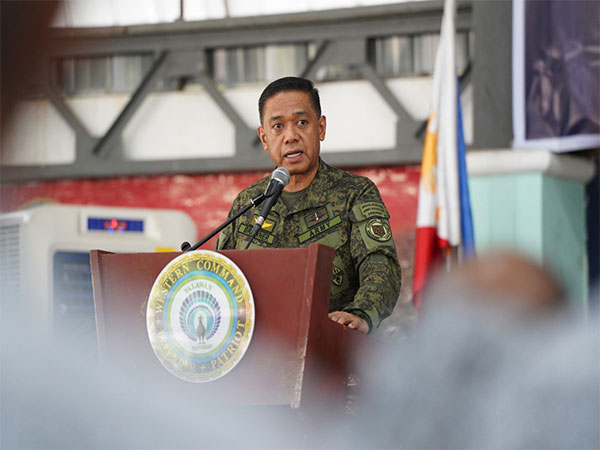
New Delhi: In the wake of last month’s South China Sea skirmish, the Philippines has called upon the China to pay 60 million pesos (approximately $1 million) in damages.
This demand was made public by Gen. Romeo Brawner Jr., the chief of the Armed Forces of the Philippines, on July 4. The compensation is intended to cover the costs of two Philippine navy vessels that were struck by Chinese motorboats during the conflict. Furthermore, Gen. Brawner has requested the return of seven rifles, allegedly confiscated by Chinese coast guard personnel amidst the confrontation.
Additionally, the Philippine military is considering requesting China to bear the expenses for a forthcoming surgery for a navy officer. The officer tragically lost his right thumb when his boat was rammed by a Chinese navy vessel during the dispute, as per Gen. Brawner.
The most recent confrontation between China and the Philippines took place on June 17, in the contested waters of the South China Sea. According to Philippine military authorities, Chinese coast guard officials, armed with knives and spears, intentionally damaged Philippine boats engaged in a humanitarian mission to deliver supplies to their outpost on the Second Thomas Shoal. This shoal, known as Ayungin in the Philippines and Ren’ai Jiao in Beijing, is part of the disputed Spratly Islands.
A small contingent of the Philippine navy has been stationed on a beached warship in the shoal, which has been under close surveillance by China’s coast guard and navy in a territorial deadlock that has lasted for years. The Chinese government lays claim to almost the entirety of the South China Sea. The officials also reported that the Chinese personnel looted firearms during the clash.
Following a private meeting with President Ferdinand Marcos Jr. and other high-ranking military officials, Gen. Romeo Brawner Jr. made some noteworthy remarks.
The discussion revolved around the progress of counterattack strategies and revised plans to safeguard the Philippines’ territorial claims in the South China Sea. Gen. Brawner mentioned that President Marcos has directed the Philippine armed forces to initiate measures to reduce tensions in the contested waters.
Gen. Brawner issued a stern warning that the Philippine forces would retaliate with equivalent force to defend themselves in the event of another encounter with Chinese troops at the shoal. He stated at a press conference on June 4, “ If our personnel are threatened with a knife, for instance, they will respond in kind with a knife, adhering to the principle of proportionality.”
On July 2, during the ninth session of their Bilateral Consultation Mechanism on the South China Sea, Manila and Beijing agreed to “ re-establish trust” and “ rebuild confidence” to more effectively manage maritime disputes. In response to the escalating aggression of the Chinese regime in the region, the Philippines has been fortifying its alliances with neighbouring countries and beyond.
In a recent announcement by the Department of Foreign Affairs of the Philippines, it was revealed that a meeting is scheduled for July 8 in Manila. This meeting will bring together the foreign and defence ministers of Japan and their Philippine counterparts. The agenda of the discussion includes “ bilateral and defence and security issues impacting the region” and an exchange of perspectives on regional and international matters. It’s worth noting that Japan had previously voiced its concerns regarding the recent China–Philippine conflict.
At a recent event hosted by the Heritage Foundation, Matthew Pottinger, who served as the deputy national security adviser during the Trump administration, made a significant statement. He suggested that Beijing’s recent actions against the Philippines were a strategic move aimed at undermining Washington’s credibility and laying the groundwork for a potential future invasion of Taiwan. This was referred to as a ‘Dress Rehearsal for Taiwan’. Mr. Pottinger described the recent events as a “ dress rehearsal for Taiwan” . He suggested that the Chinese regime is attempting to instil a sense of hopelessness and challenge the notion that the United States would come to the aid of not just the Philippines, but Taiwan as well. He further emphasized the need for the United States to collaborate more closely with the Philippines in order to counteract the threats posed by the Chinese regime.
In response to the incident last month, the United States reiterated its unwavering commitment to the Philippines, as outlined in the 1951 Mutual Defence Treaty. This treaty mandates mutual support in the event of an attack on either nation. Washington expressed strong condemnation of Beijing’s “ dangerous and irresponsible actions” that prevented the Philippines from carrying out a lawful maritime operation in the South China Sea.
In a show of solidarity, National Security Adviser Jake Sullivan, Secretary of State Antony Blinken, and Defence Secretary Lloyd Austin reached out to their counterparts in the Philippines to reassert the commitments of the United States.
Earlier in April, a trilateral summit involving the U.S., Japan, and the Philippines took place in Washington. The leaders of these three nations expressed their opposition to the aggressive manoeuvres of the Chinese regime and its illegitimate claim over nearly the entirety of the South China Sea. They urged Beijing to adhere to the 2016 verdict of the Permanent Court of Arbitration, which stated that the maritime claims of the regime are devoid of any legal foundation as per international law. Furthermore, the leaders announced plans for their coast guards to participate in a trilateral exercise in the Indo-Pacific region in the forthcoming year.